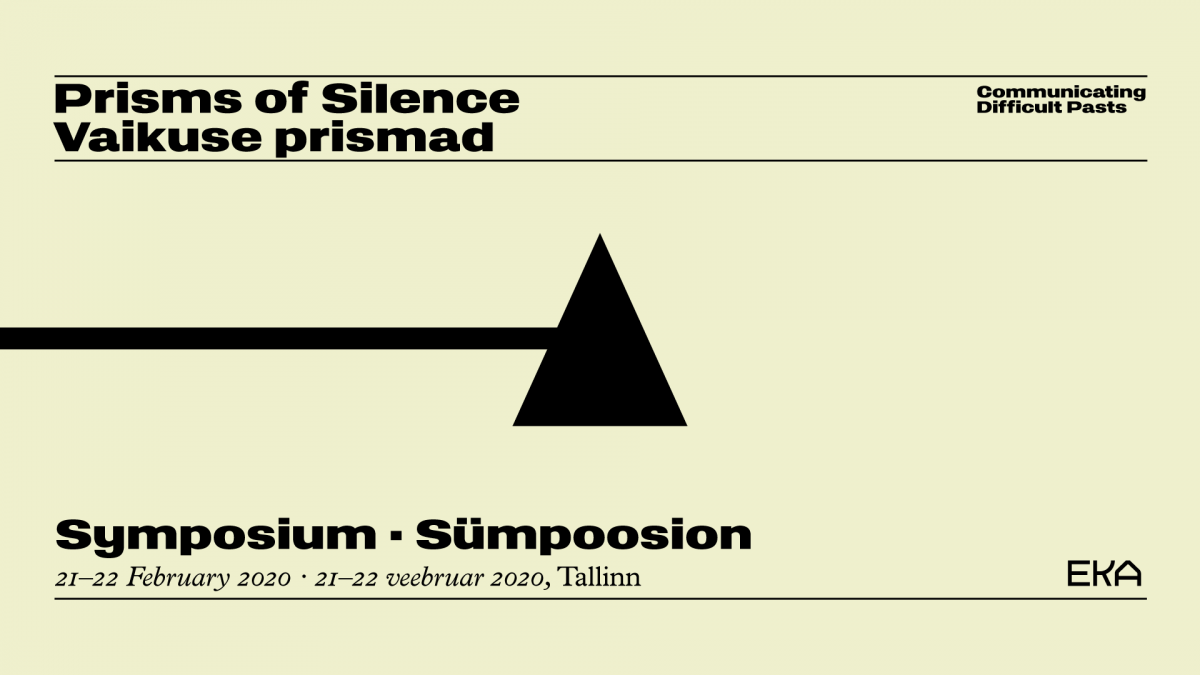
On 21–22 February 2020 the symposium “Prisms of Silence” will be held at the Estonian Art Academy in Tallinn. The event will bring together artists, curators, art historians and literary and theatre scholars to discuss the contemporary legacies of the twentieth-century past. The event aims to rethink the silences about WWII, its aftermath and the Soviet era, and will reflect on the present social change that evolves from it. The symposium forms part of the project “Communicating Difficult Pasts” (2018–20), which is held in collaboration between the Institute of Art History and Visual Culture at the Estonian Academy of Arts and the Latvian Centre for Contemporary Art, and is curated by Margaret Tali and Ieva Astahovska. The project concept evolves from the necessity to understand the darker sides of twentieth-century Baltic history, while setting it in a broader geopolitical context and including perspectives of minority communities.
At the Estonian Academy of Arts, the symposium participants will come together from the Czech Republic, Poland, Belarus, Ukraine, Kazakhstan, Lithuania, Latvia, Chechnya, Germany, UK, France, Canada and Finland. It will ask: How can we think about silence, for instance, in relation to the rise of right-wing movements and in relation to the repression of women and minority communities? Does post-conflict silence embed different qualities for different communities, and if so how could they be described? Which ethical and aesthetic strategies have been used to communicate the unspoken and silenced past? How can oral history and vernacular memories challenge and shift official narratives of history, where difficult subjects like the relationships between antisemitism and communism, the Holocaust and Soviet deportations, often remain contested?
The presenters will share recent research that relies on art, literature, film and biographical material and revisit the role of the arts in rethinking the past and analyzing the persistence of memory conflicts. They will bring to the fore alternative ways of commemorating silenced traumas, revisit dissident activism based on missing histories of women and examine repression of different minority histories as well as ethical ways of communicating trauma and experiences of violence in the work of artists, writers and playwrights. By bringing research together trans-nationally the symposium aims to add to the current frameworks for approaching silenced subjects and discussing traumatic experiences.
For the detailed symposium program please see here. In order to take part, registration is required; please see here.
The symposium is supported by: Nordic-Baltic mobility programme, NEP4DISSENT COST Action, EKA Creative Cluster, Estonian Society of Art Historians and Curators and the Cultural Endowment of Estonia
The project “Communicating Difficult Pasts” will continue with an exhibition “Difficult Pasts. Connected Worlds” at the Latvian National Museum of Art in April.